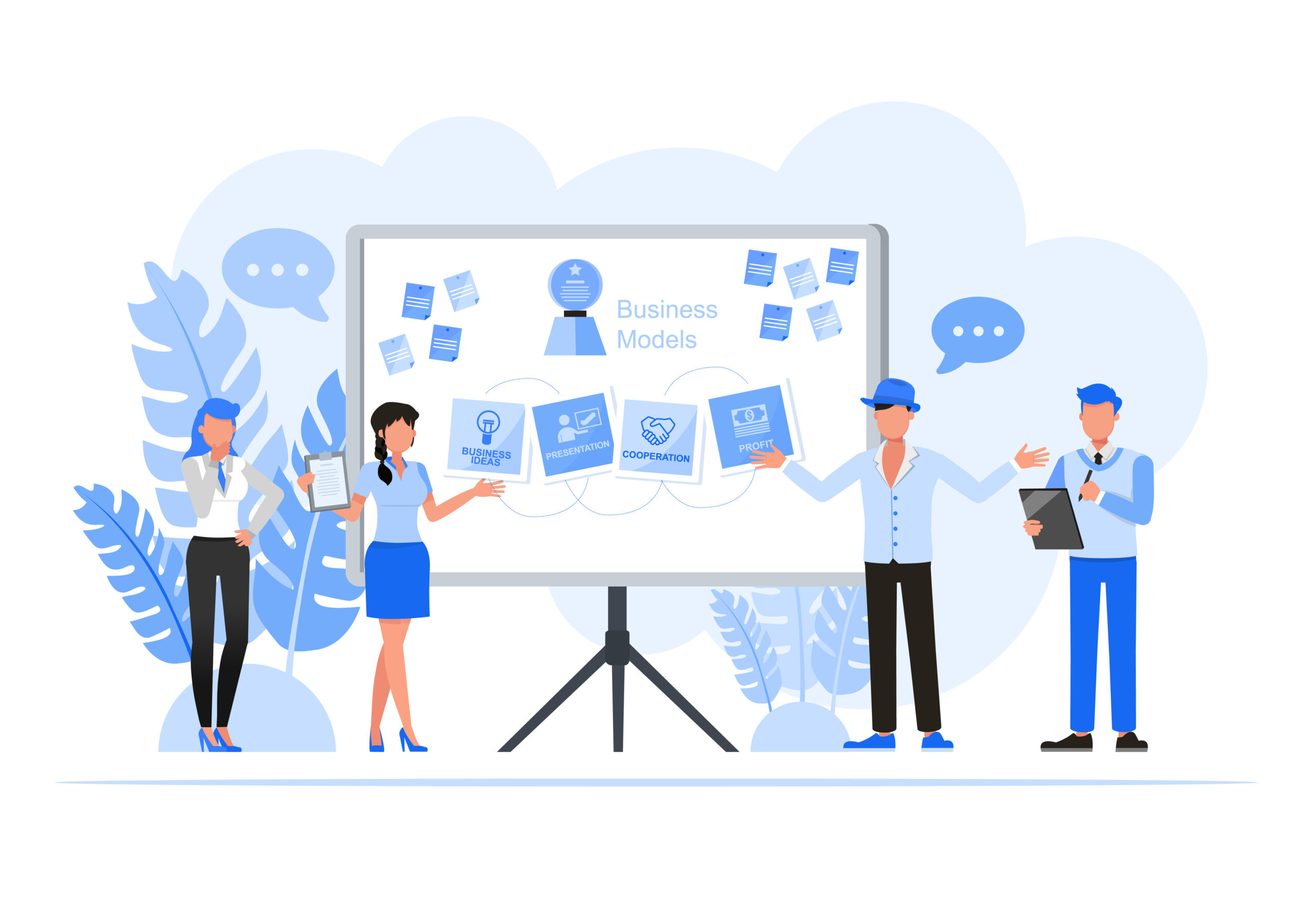Estimated reading time: 5 minutes
Table of contents
Creating a Startup with Business Development Tools
Starting a business can be a daunting task and the risk of failure is high. One statistic often stated is, “9 out of 10 startups fail.” With the right approach and business development tools, however, the transition from Joe to Entrepreneur can be much smoother and more readily successful.
In particular, there are several methodologies that have come up over the years that are geared for ready-ing entrepreneurs and anyone with an idea into building something that users and customers are more likely to pay for. Some of these tools include: Lean Startup methodology, the Business Model Canvas, Empathy mapping and project management.
Lean Startup, Business Model Canvas, and Empathy mapping
The Lean Canvas
One of the most popular methodologies for startup business development is the Lean Startup methodology, which focuses on creating a minimal viable product (MVP) and gathering customer feedback to iterate and improve the product or service. This concept was founded by Steve Blank and Eric Ries. You can read more on the history of Lean Startup here. It was a big move away from the traditional way of thinking: Start with a 50 page business plan and poof, a business. Taken from lean manufacturing, the goal of lean startup is to iterate quickly, learn constantly, and fail fast.
The Lean Canvas is all about Idea Validation
Lean startup will take you through the process of creating a single page (or board) business plan. You’ll run through your assumptions, hypothesis, and test them. By the time you complete the canvas, you should have a good handle on whether or not your idea, business, or product is a viable item.
Leantime, an open source project management system based in lean and agile methodologies, includes the ability to tie your Lean startup canvas to your To Dos and enables you to connect the process with product and business milestones so that you can navigate the entirety of business and product development in a single place.
Business Model Canvas
Another important tool for business development is the Business Model Canvas. Originally created by Alexander Osterwalder in 2005 and based off his work on business model ontology. The business model canvas helps entrepreneurs visually map out the key elements of their business — including customer segments, value propositions, and revenue streams. This tool can be used only or in conjunction with the Lean Startup methodology to create a clear and effective plan for the development of a new business. While the two have some overlaps, they can both supplement each other in their approach as the Business Model canvas looks more at business development; whereas the Lean canvas is more directed at concept validation.
Empathy Mapping
Another layer to business concept validation — something done to promote business success — is Empathy Mapping. Empathy mapping is a customer validation tool that looks more directly at understanding the potential customer and being able to tie the product(s) or business offerings to end user value.
Empathy mapping involves understanding the needs and wants of the target customer, and can be used to gain insights into the customer’s pain points and opportunities for innovation. By understanding the customer on a deeper level, entrepreneurs can create a product or service that truly meets the needs of the target market.
This is also useful in product and offering positioning and marketing. Having a better understanding of the end-user’s pain points (or problems) makes it easier to explain why your solution (product or offering) will help ease the pain of whatever their problem ends up being.
Entrepreneurship and Project Management
While many entrepreneurs don’t consider themselves project managers, they will often find themselves managing projects. Whether that is through business development, business planning, product development or service development… Project management is an important aspect of startup business development. It helps to ensure that the development process is on track and that all tasks and milestones are being met.
It is important that entrepreneurs select the right tools to help them accomplish their goals. By using the right project management tools and techniques, entrepreneurs can effectively plan and execute the development of their business, from the MVP to the final product or service.
The right business tool to tie it all together
Overall, one of the keys to being a successful startup founder and entrepreneur is in utilizing the right business development tools at the right time. Using tools such as the Lean Startup methodology, Business Model Canvas, and Empathy mapping to iterate, gain insight into the customer and their needs, and improve the product or service. By combining these tools with effective project management, entrepreneurs can ensure that their business is on track for success.
Leantime is an open source business development tool
While starting a business is a challenging task, Leantime is one of the few open source project management systems that allows the entrepreneur managing projects to be a project manager and, in doing so, become more successful.
As part of this, Leantime has built in the lean canvas, problem-solution-fit, business model canvas concepts and even empathy mapping. Taking all these business development tools and placing them in a location where the entrepreneur can also manage the ‘doing’ of building a business makes the process a lot easier and ultimately, more likely to be successful. And who doesn’t want that?
By using these tools and techniques, entrepreneurs can effectively plan and execute the development of their business, and increase their chances of being in that top 10% of startups that avoid business failure.
Interested in learning more?
Take a look over at Leantime’s features. Realizing that early stage entrepreneurs are working to grow, they’ve created a pricing structure that is friendlier to rapid team growth while keeping the costs more manageable.



